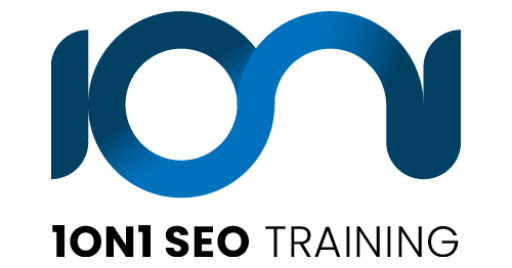An SEO training course is your key to unlocking many possible new search engine optimization careers.
The global SEO industry continued to present unprecedented growth in the last few years, and not even COVID could stop its expansion across countries.
SEO has become essential to businesses in the United States and across Asia and other regions.
SEO's growth is proof that it has never been 'just a fad' – it is a proper digital marketing channel (an inbound one) that provides concrete advantages to businesses.
Regardless of the industry vertical or market, SEO has something to offer. And by enrolling or signing up for an SEO training course, you can be part of something truly magnificent in the coming years.
An SEO training course might be perfect for you if you:
1. Like digital marketing in general.
2. Believe that every business should have a fair chance of being competitive in the digital space.
3. Are you interested in search, search engines, and search engine marketing?
4. Are motivated to learn new techniques and develop new skills.
5. Are not afraid to experiment and make a few mistakes to be more self-sufficient and knowledgeable.
What's in an SEO Training Course?
The ideal SEO training course should emphasize practical SEO skills, so you can hit the ground running.
Many of the initial steps required for search engine optimization can be performed easily after some research and cross-checking with tools. However, you still need to know 'how' to do it on a website.
Suppose you are an aspiring SEO professional or a business owner who wishes to perform SEO on a digital property to make it more visible and profitable. In that case, you need a comprehensive SEO training course taught by someone with many years of real-world experience. Some of the essential areas that you will encounter in good courses include:
The Fundamentals of Google SEO
Learn about search engine algorithms in an SEO training course and how they affect organic search results and websites. Building on this foundation, you'll learn how to pick keywords and conduct keyword research, consumer psychology and search behavior, and how to do on-page SEO analysis to uncover possibilities to improve a website's search optimization.
Website Optimization for Google Search
From completing the first audit to presenting your results and recommendations, learn the ins and outs of website optimization. Learning how to pick and apply relevant keywords throughout a website, combining keyword research into a content marketing plan, and optimizing a site for local search are examples of hands-on tasks. You'll also learn how to develop objectives, meet client/stakeholder expectations, create effective analytics and reports, and communicate SEO improvements.
Advanced Content and Social Strategies for SEO
Discover how content marketing and social media ecosystems work together in an SEO training course to increase search traffic to a website. Discover how to utilize influence marketing to develop a website's authority and leverage content marketing and social media as part of your SEO plan.
Keyword Research for SEO
Organic (not paid ads) is the sole source of consistent long-term traffic. When a holistic, successful organic marketing and SEO plan is developed, it may become a key income generation channel. Therefore, SEO should be a comprehensive or holistic effort, with keyword research as a crucial component. Keyword research is one of the primary branches of the discipline that you will learn in an SEO training course.
Over half of companies said they create content based on search data. It's no longer sufficient to build a website or develop content in a vacuum and then "SEO" it later.
One of the first stages in identifying your SEO goals, the sort of content you'll publish, and how your website is optimized should be keyword research.
Keyword research is researching prominent search phrases that people use in search engines like Google and strategically incorporating them into your content so that it ranks better in search engine results pages (SERP). In search engine optimization, keyword research has always been a crucial step.
Learning how to choose content topics centered around a collection of targeted keywords you want the content to rank for is essential. This is the first step in the process of performing relevant keyword research.
Site Structure Training
It's critical to structure your website to be both usable and findable. Unfortunately, many websites lack a clear structure that directs users to their needed content. A good site structure also helps Google comprehend your site better. Therefore, it's crucial for SEO. Therefore, site structure training is essential in many SEO training courses.
A website's structure dramatically influences the visitors' UX or user experience. For example, it's unlikely that people will become frequent visitors or customers if they can't access the items and information they need. Put it another way; you should assist them in navigating your website. A well-structured website will aid this.
It should be simple to go around.
Your content and items will be easier to find if you classify and connect them. New visitors should understand what you're writing or offering right away. A well-structured website dramatically enhances your chances of being seen in search engines.
Google can tell where the most helpful information on your site is based on how your site is structured. It aids search engines in determining what your site's primary purpose is or what you're offering. A good site structure makes it easier for search engines to discover and index material. As a result, a decent structure should result in a higher Google ranking.
A business may have blog entries on its site that are pretty similar. However, if they write a lot about SEO, they might produce several blog pieces about site structure, each focusing on a different area.
As a result, Google won't be able to discern which of these sites is the most significant, and you'll have to compete with your material for a top Google position. Therefore, you should tell Google which page is the most essential to you.
To achieve this, you'll need a robust internal linking and taxonomy structure so that all those sites work for you rather than against you.
The items you offer in your business are likely to change over time. The stuff you're writing does as well.
Any business will undoubtedly introduce new product lines as old stock runs out. Businesses will also write new articles that supersede previous ones. You don't want Google to display your things that are no longer available or blog entries that have been removed, so you must deal with these kinds of modifications to a business' site's structure.
eCommerce SEO Strategies
Ecommerce SEO is another important area of an SEO training course. It is the practice of increasing the visibility of an online store. Therefore, it would be desirable for a business to rank as high as possible when people search for the things they sell to generate more targeted traffic and sales.
Paid search can get you visitors, but SEO is considerably less expensive. Plus, ad blockers and blindness might make sponsored search less successful, so you'll want to optimize for search. It's feasible to run ad campaigns and do eCommerce SEO simultaneously. If you are an aspiring SEO professional and you master both, you're going to earn twice as much (at least) from running two types of revenue-generating activities.
For search and user experience, eCommerce SEO mainly includes improving headlines, product descriptions, meta data, internal link structure, and navigational structure. In addition, each product you offer should have its page tailored to attract search engine visitors.
When a customer needs a product or service, what do they do? Many people use Google to find information. They're seeking alternatives, advice, comparisons, and other data to aid their decision-making.
A business loses essential access to qualified and eager eCommerce buyers if your website does not show in the SERPs. A business' items may have a presence on the internet, but are they easy to find?
This is where eCommerce SEO enters the picture. First, it allows you to contact your target audience without paying for advertisements. Then, once you've attracted visitors to your site, you can wow them with high-quality items, engaging text, and compelling calls to action.
A company would be a disservice if you optimized your website for humans. So the first step in recruiting new consumers is to bring visitors to your website, which SEO for eCommerce addresses. Ecommerce SEO may appear to be a daunting endeavor, especially if your website already has many items. Yes, it will take time, but with the proper technique, you can make it go faster.
Yes, keywords are still important.
You don't want to stuff these keywords into your product titles and descriptions, but they must appear in writing. The search volume of a term indicates how much interest it generates among customers. A high search volume suggests that a keyword is popular, so you'll see more active searches for it.
When customers buy advertising based on a specific term, CPC shows you how much they spend per click. Therefore, a high CPC indicates increased competitiveness. Consider a long-tail term if your target keyword is exceedingly competitive.
Local SEO Training Course
Local SEO is a marketing strategy that improves your internet presence to appear higher in local search results. The Local Pack shows at the top of the search engine results page (SERP) for a local search. It generally consists of three organic results (ads may appear here) and a map with pins for each ranked business. It's vital to remember that a company's Google Business Profile (GBP), not its website, is what rankings here.
As a result, it is impossible to appear in the Local Pack without GBP. The order of the results in this section is determined mainly by the distance between the searcher and the profile, the relevancy of the search query, and the profile's popularity.
One of the most crucial search goals for any local business is to appear in Google's Local Pack. As a result, these three top-ranking results get the most hits and, as a result, the most website traffic, leading to increased sales and profitability.
Word-of-mouth and local ads may be effective ways to recruit local clients. However, an internet search may be just as effective, if not more so. For example, 97% of search engine users have looked for a local company online. And local information accounted for 46% of all Google queries.
If a business does not appear in local search results, it may be missing out on crucial traffic and consumers. To put it another way, local SEO might be the key to keeping your business relevant and expanding.
Developing Important SEO Skills for Your New Career After an SEO Training Course
Other aspects influence the efficiency of an SEO strategy, but every effort must have at least one person in charge. This individual will be responsible for creating objectives, directing teams, conducting research, and a slew of other duties; yet, without the necessary general skills to back up these responsibilities, your entire SEO strategy might fall apart.
So, what are the most crucial talents you'll need for SEO?
Analysis
The first and most crucial skill on our list is analysis, a broad term covering a wide range of SEO topics. As an aspiring SEO practitioner, you must be able to take data regarding who, what, when, and where it comes from and grasp the "how" and "why" questions that come with it.
You'll need to look at statistics on organic traffic gains, for example, and figure out which of your approaches contributed to the boost. You'll need to look at recent ranking dips and figure out what caused the drop. To discover the optimal route for your campaign, you'll need to analyze data on hundreds of keywords and find out which pieces of content best resonate with your audience (and why).
Research
After analysis, research is the second most crucial ability, and you'll be doing much of it. An SEO campaign's research usually begins with a primary keyword and competitor analysis, which offers the information needed to build a strategic basis for your campaign. However, SEO necessitates significantly more study; you'll also need to keep up with the newest search engine technology news.
The next step is to observe how your strategies affect your search rankings (and user perceptions). When you encounter difficulties, you'll have to find solutions to your problems. The better your research is, the faster and more quickly you can do it.
Coding Fundamentals
To be effective with SEO, you don't need to be a competent coder. However, essential SEO capability is commonly incorporated into today's CMS systems. If you need to modify your site's backend, you can find step-by-step instructions online.
Even so, having a rudimentary understanding of coding is beneficial; you should be able to look at the source code of a website and determine the essential elements relevant to your campaign. You should also be able to adjust and swaps fast and efficiently without disrupting your site.
Communication
The value of communication in the SEO world cannot be overstated. To guarantee that your orders are followed, you'll need to speak with your other team members ahead of time. In addition, you'll have to explain complicated topics to clients who may or may not be technical experts in the field. You'll also need to provide material that is relatable to your audience. Finally, all these roles need strong communication skills; without them, you'll struggle to stay competitive.




